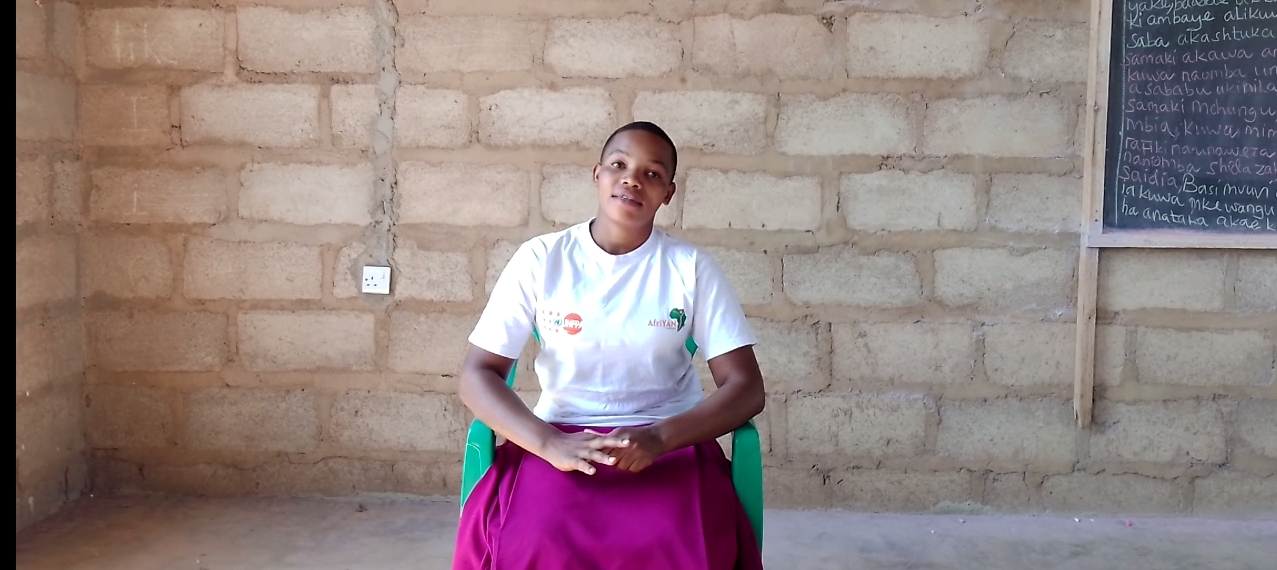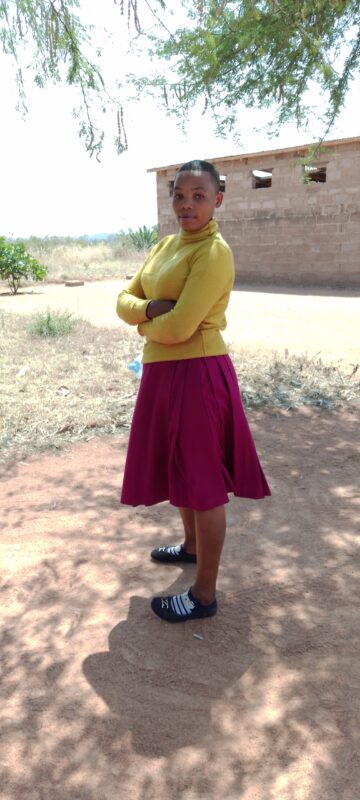Education support program changing women’s lives in Tanzania
Story

Hapyness was committed to getting an education before an unexpected pregnancy forced her to withdraw from school, leaving her future in jeopardy.
Facing life as an uneducated single mom in her teens, she was dangerously close to adding to already alarming statistics in Tanzania’s Shinyanga region.
A 2015/2016 Tanzania Demographic and Health Survey (TDHS) report cited gender-based violence affected 78% of married women aged 15 to 49 years in this area.
The Shinyanga region also has the highest rate of child marriage at 59%. Equally alarming, teenage pregnancies for girls below 18 was recorded at 34% and Hapyness was about to add to this figure.
Sadly, her baby passed away shortly after birth, leaving Hapyness reeling, lost and lacking direction. She worried she would suffer a similar fate as her mother who split from Hapyness’ father years earlier and struggled greatly to raise Hapyness and her siblings, continually battling poverty.
At 19 years old, Hapyness’ outlook was bleak, and her opportunities few.
But she found a new path by joining the Cuso International-supported AGAPE Knowledge Open School (AKOS) and has found renewed purpose and a growing belief in herself.
The program supports women, girls and children to advance gender equality and social inclusion in the Shinyanga region and focuses on four key areas:
- Child and youth protection
- Prevention of GBV, child marriages and pregnancies
- Skillful parenting
- Women and youth empowerment
Hapyness joined AKOS and received the support she needed to get her education back on track. The program’s teachers and Cuso volunteers made her feel supported and empowered as she resumed her studies.
“Through the teachers that Cuso International has brought us, I’m now able to learn all my subjects,” says Hapyness.
She has benefitted from not only the instruction but from other efforts like providing her and other students with food so that they can concentrate on their studies, as well as repairs to the local learning centre.
Hapyness was especially enthusiastic about being able to learn English through video lessons – a key skill she believes will be an important asset going forward.
“Initially, I could not communicate in English, now I am able to express myself,” she says proudly.
In addition to her own pursuits, Hapyness has witnessed how the program has helped other young women like her.
 “The girls in this program have been through different challenges,” she says. “Some have been affected by childhood marriages, some have been abandoned by their parents and some have gone through difficulties such as poverty and violence. We all desire to study so that we can reach our goals.”
“The girls in this program have been through different challenges,” she says. “Some have been affected by childhood marriages, some have been abandoned by their parents and some have gone through difficulties such as poverty and violence. We all desire to study so that we can reach our goals.”
Hapyness is deeply inspired by women who have already taken part in AKOS, which helped them complete high school. “They are currently in university, heading towards their dreams,” she says.
Determined to follow a similar path, and with a renewed sense of optimism for the future, Hapyness’ name now matches her outlook on life.
“I am currently very happy and full of peace as my heart’s desire was to continue with my education,” she says, adding that she has now set her sights on becoming a doctor.
“Another dream I have is to be an advocate for girls’ rights,” she says. “I would like to offer them education and free them from hurtful traditional beliefs and avoid acts that deter their progress.”
“When women are empowered, they are able to prosper,” says Hapyness. “I hope that in the future, women in Tanzania are at the forefront in helping our communities and that we’re able to accomplish all that we desire.”
Help more young women like Hapyness achieve their dreams. Donate today.